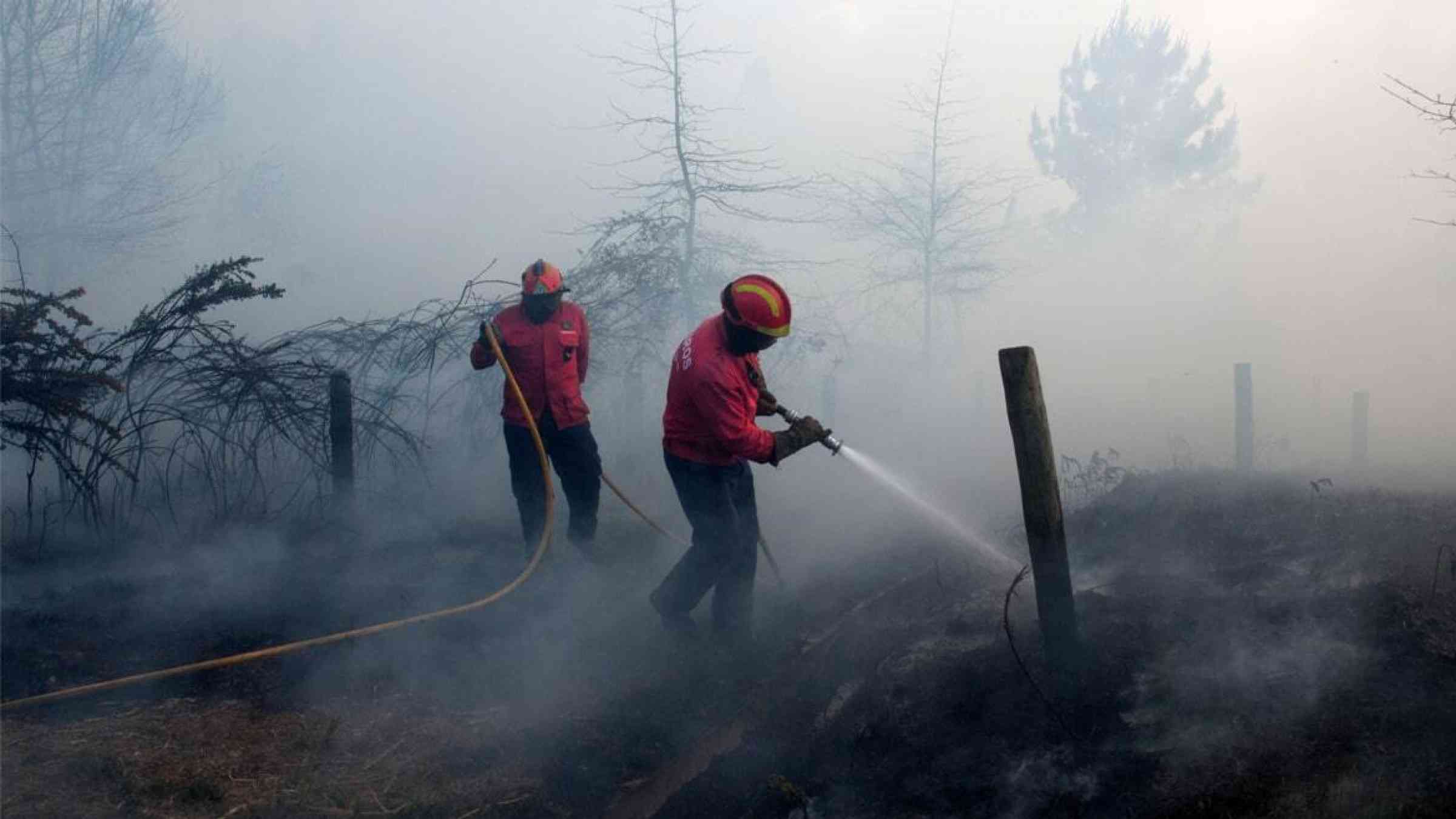Lebanon's forests: Dousing fire risks through stronger forest management

Summer of 2023 was marked by an early start to the wildfire season in Lebanon as intense forest fires ravaged several parts of the country, with fires erupting including in the Akkar and North governorates on a near-daily basis.
Government and community-based organizations responded quickly, joining forces to combat the flames, and often managing to limit the damage and avoid casualties despite the odds being stacked against them. “We do this with limited funds gathered from friends who share our love for this land,” says Khaled Taleb of the Akkar Trail Association, one of the community firefighting groups. “We have protected thousands of hectares using two locally equipped vehicles. With more support, we could avoid further tragedy and losses.”
Khaled is speaking about the need for equipment and human resources to fight fires as and when they flare up. However, these measures will only serve to combat the flames in the moment. The reality is that fire is a long-term problem in Lebanon: every year, the country loses 1,500 ha of forested areas. In order to sustainably manage its forests landscapes, Lebanon needs to take swift and decisive action to mitigate wildfire risks, which are amplified by climate change because higher temperatures dry out vegetation and create conditions conducive to the start and spread of wildfires. With July 4 being the hottest day on average on the planet since records began, it is clear that global climate change can no longer be regarded as tomorrow’s concern. Lebanon needs to act now.
Lebanon’s 139,000 ha of forests provide a range of direct and indirect ecosystem services to local communities—and indeed the nation as a whole. Putting a figure to these services is a nuanced exercise, but World Bank research conducted as part of a technical assistance project funded by PROGREEN found that Lebanon loses an estimated US$296 per hectare in total economic value every time there is a forest fire. PROGREEN is a multi-donor trust fund administered by the World Bank.
Sustainable forest management has the potential to safeguard the substantial economic value locked in the country’s forests by reducing the ever-present risk of wildfires. At the same time, sustainable forest management has the potential to unlock economic opportunities for Lebanon’s most vulnerable communities. In a country like Lebanon where 13% of the land is covered in trees—forests can represent a safety hazard or a potential source of sustainable livelihoods.
These findings and others are published in the recently released “Lebanon Forest Note: Reducing Wildfire Risk through Sustainable Forest Management.” The note sets out five concrete, actionable recommendations for creating inclusive economic opportunities while reducing the risk of wildfires:
- Improve governance and local capacity for sustainable forest management. This includes clarifying the roles and responsibilities of various ministries with respect to managing and coordinating fire risk management strategies; enabling communities to expand on their firefighting successes at a larger scale; and incentivizing private landowners to more sustainably manage the forests on their land.
- Improve access to data and information on forest fires, potentially by developing a shared Integrated Forest Fire Information Management System and running an outreach program to raise awareness about forest fires.
- Add value to wood products (for example, by turning wood into furniture) and non-wood products (such as pine nuts, honey, and carob), which would require a further feasibility analysis and, if the early indications are positive, strengthening the legal and regulatory framework for the sustainable harvesting and production of wood and non-wood products.
- Support sustainable nature-based tourism, a non-extractive industry that can be leveraged to raise fire-risk awareness and promote responsible behavior among tourists. Improved infrastructure for nature-based ecotourism would also be beneficial to firefighting organizations to access remote areas.
- Restore forest ecosystems to reduce fragmentation and related fire risks. Degraded forests and edge habitats of fragmented forests typically contain higher fuel loads, which increases the likelihood of these areas catching fire.
Some of the recommendations have already been integrated into development aid efforts, and there are signs that this work will be carried forward. Recently, the Global Environment Facility approved a US$3.8 million grant for an upcoming project titled “Community-based Wildfire Risk Management in Lebanon’s Vulnerable Landscapes”. This project will use a community-based approach to support Lebanon on forest fire risk management.